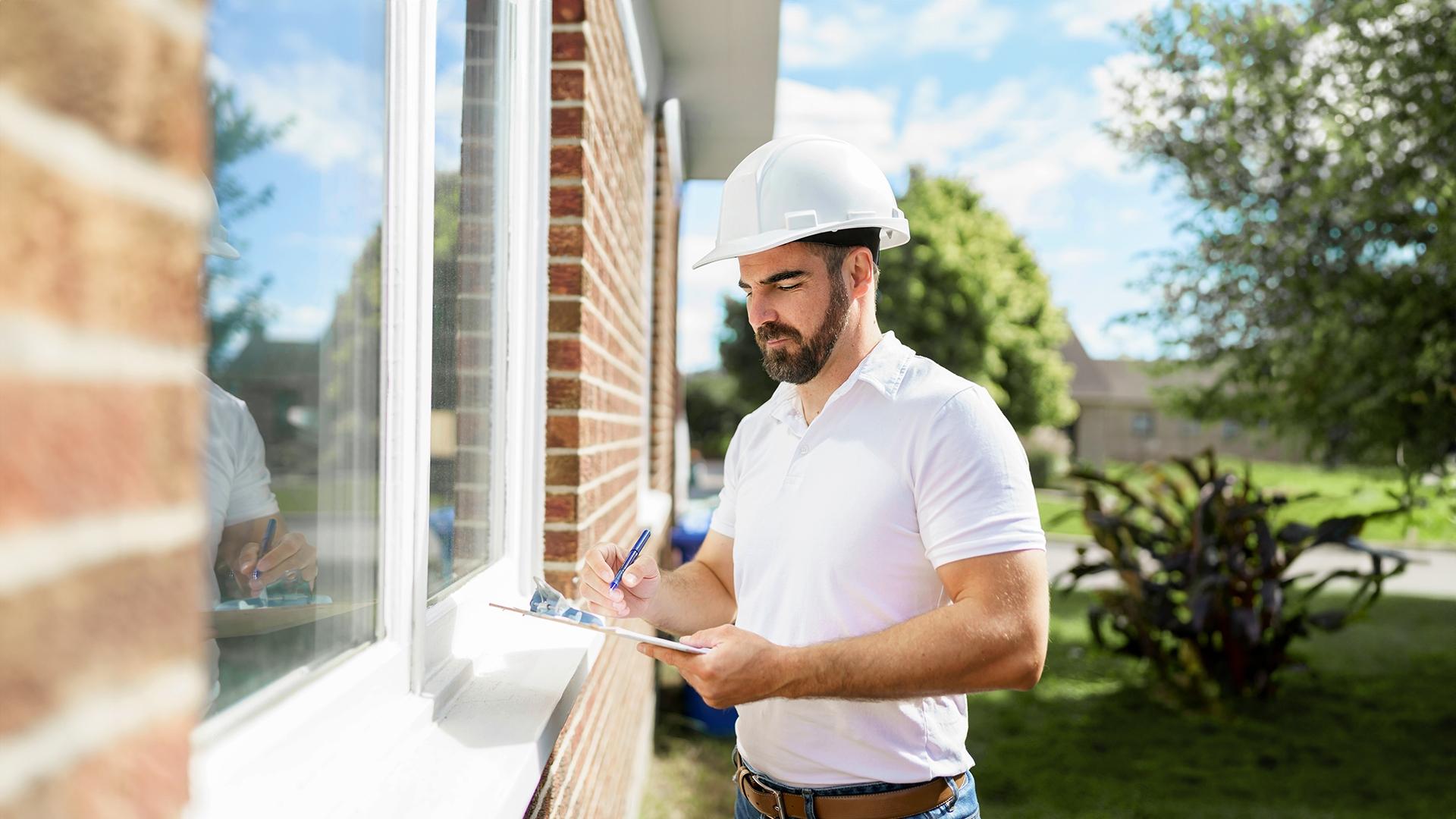Prepurchase inspection: why, when, and how

The purchase of a property is a sizeable investment. To avoid unpleasant surprises, make sure you’re fully aware of its current state: request a home inspection.
What’s the purpose of a home inspection?
Undergoing an inspection before buying real estate has 2 main advantages:
- It provides a thorough, objective assessment of its overall state.
- It helps detect any noticeable problems that could potentially diminish its use or value.
A prepurchase inspection ensures that you, as the buyer, make an informed choice. It helps you avoid any complications and costly financial consequences.
Homeowners can also request a house inspection before putting their property up for sale. This is known as a presale inspection. The results help establish a price or define what work needs to be done before putting the house on the market. The report can also be provided to prospective buyers.
Is it essential to have a home inspection?
A home inspection or prepurchase inspection is not mandatory. However, it is strongly recommended.
Why is this so? Because the buyer is ultimately responsible for any defects apparent at the time of the transaction. Problems arise once the house is yours? You have no recourse if the problem was detectable during a visual inspection and no such inspection was carried out. This means, for example, that you can’t ask the previous owners to pay for repairs.
Should you carry out the inspection by yourself, you may end up missing critical elements. Hence the importance of calling in specialists. In so doing, it becomes their responsibility to detect any apparent problems.

What happens during a home inspection?
A home inspection or prepurchase inspection is a thorough assessment of the physical state of all visible and accessible systems and components of the house or condominium. It is a purely visual evaluation which is carried out by a building inspector.
On the inspection day, you and your real estate broker are encouraged to be on site. The aim is to be able to observe your specialist’s work, so as to better understand their report afterwards.
All aspects of the building are scrutinized for potential problems. Both inside and out: building structure, lot, cladding, doors and windows, roofing, plumbing, electricity, heating, air conditioning, ventilation, etc.
As the inspection is only visual, no walls are opened and no furniture is moved. Instead, signs of potential problems are looked for, such as visible cracks in the foundation or traces of mould. Should certain aspects not comply with regulations, these are also noted.
An inspection takes around 2 to 3 hours. The duration varies according to the type of property. The inspection of a 2-bedroom condominium will require less time than that of a 2-storey single-family dwelling.
The building inspector submits a written report approximately 48 hours after the inspection, or as otherwise agreed. This detailed report contains all the inspector’s findings, complete with photographs. It indicates whether urgent or major corrective measures are required. It may also indicate whether an in-depth assessment of a specific element is required.
If the inspection of a component or system is not feasible, the reason shall be explained in the report. For example, if the component is hidden in a building cavity or behind cladding. Or if it is buried underground or beneath the snow.
How should one decide on the right building inspector?
Perhaps surprisingly, the profession of building inspector is not tied to any regulated training. As a result, anybody could, in practice, claim to have the necessary skills. So, just who should be entrusted with the inspection mandate? Here are 3 things to look for:
- The person is a member in good standing of a relevant professional order, such as that of architects, technologists or engineers. Keep in mind that one main purpose of professional orders is to protect the public.
- They hold Errors and Omissions liability insurance in force. You can call the respective insurance company to confirm this.
- They have reliable references and are happy to share them with you. Feel free to contact them!
You should also seek out an inspector who’s familiar with the area in which your home is located. In case there are common problems in this sector, such as with the type of soil, your specialist will be looking for signs and able to warn you.
You can make your choice from among our Approved Suppliers. Our network includes many trustworthy building inspectors.
When should an inspection be carried out in the buying process?
Inspection is a condition that must be written into the promise to purchase the property. A deadline must be set, which is ideally between 7 and 10 days. This allows time for the inspection itself, the writing of the report and your reading of its conclusions.
In addition, it is required to include a statement to the effect that the buyer must be satisfied with the findings of the building inspection.

How much does it cost to have a house inspected?
The inspection is usually requested by those purchasing the property. This means they are responsible for paying the costs.
The cost of the inspection may vary according to the type of building, its size, age, etc. It is a worthwhile investment, considering all the trouble this inspection can save you!
What should be done with the findings of the inspection report?
Once the report is in your hands, different options are available, depending on the inspection findings.
In the event of necessary major repairs, you can request that the seller arrange for the work to be carried out. You can also negotiate a reduction in the sale price.
If you are no longer interested in buying the property, talk to your broker and follow their instructions. You’ll need to send a notice to the seller as promptly as possible. Attach to it a copy of the inspection report. Receipt of this notice by the parties concerned cancels the promise to purchase.
Were the defects discovered only minor? Well, you’ve got yourself a guide to help you plan the maintenance and renovation of your new home! Find out how to make your renovations a success and pick the right contractor. Also, don’t forget to follow our maintenance guides for each season.
Got questions about your report and the remedial work required? If you are a CAA-Quebec member, call our Residential Advisory Services for personalized, objective answers.
Can a seller’s declaration replace an inspection?
The Declarations by the seller on the immovable form is filled out by owners selling their residence. It contains useful information about the state of the house, such as repairs, renovations and any existing problems. This form does not replace an inspection. It does, however, add to the information provided in the inspection report. Indeed, the seller is responsible for known and undeclared hidden defects. The building inspector is only responsible for apparent defects not detected during their inspection.
What is the purpose of the legal warranty?
As we’ve seen, there are limits to what an inspection can do. Since it involves a visual assessment, the building inspector cannot see what could be concealed under the flooring or behind the walls. That’s why a legal warranty is so valuable, as it covers hidden defects, among other things. In summary, purchasing without first having a proper inspection and legal warranty is a risky venture. You could end up with a property riddled with serious defects against which you have no protection. The financial consequences can be dramatic.

Benefit from personalized advice
Do you have questions about your home, need specific information, or are you looking for referrals to find an Approved Supplier?